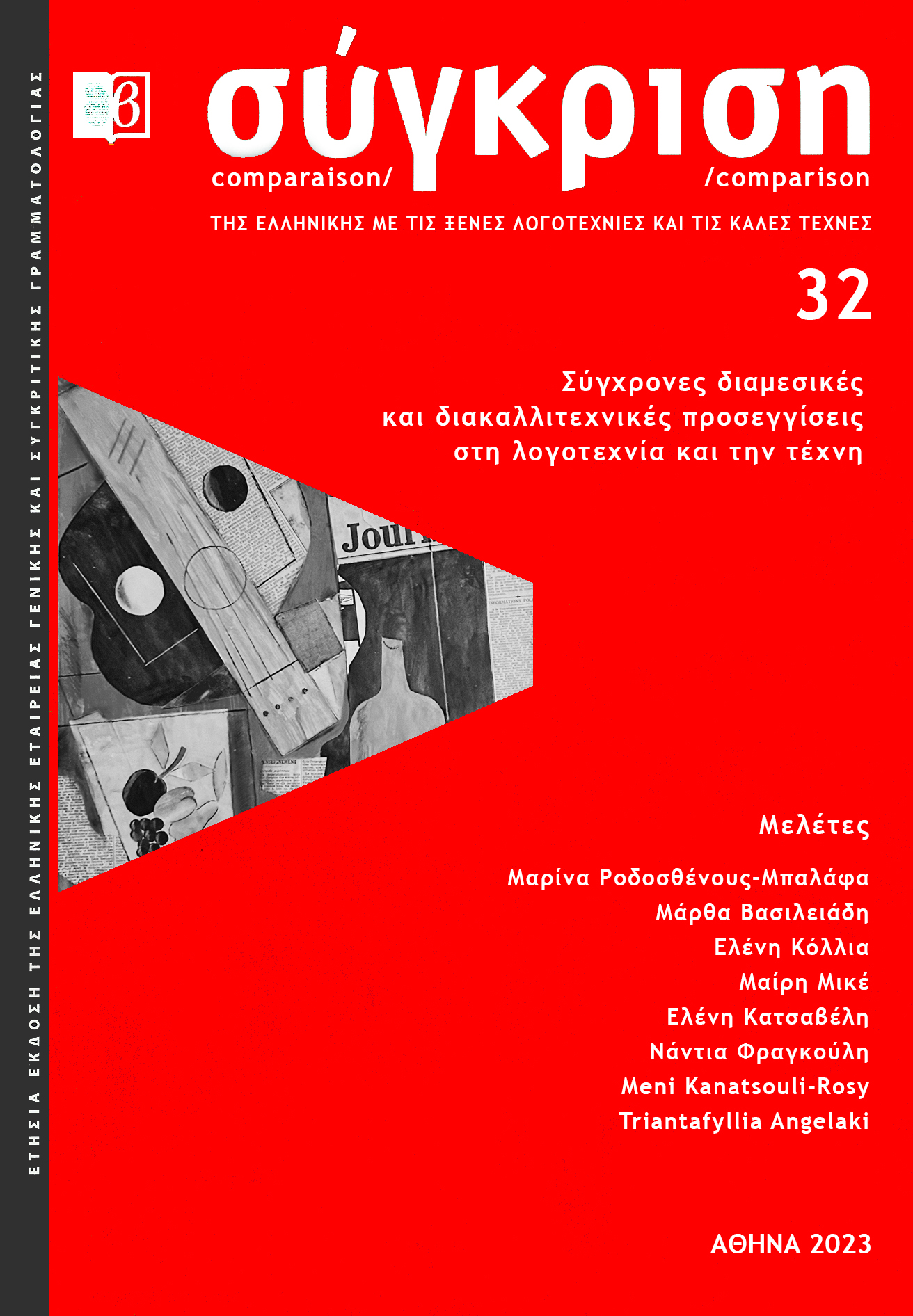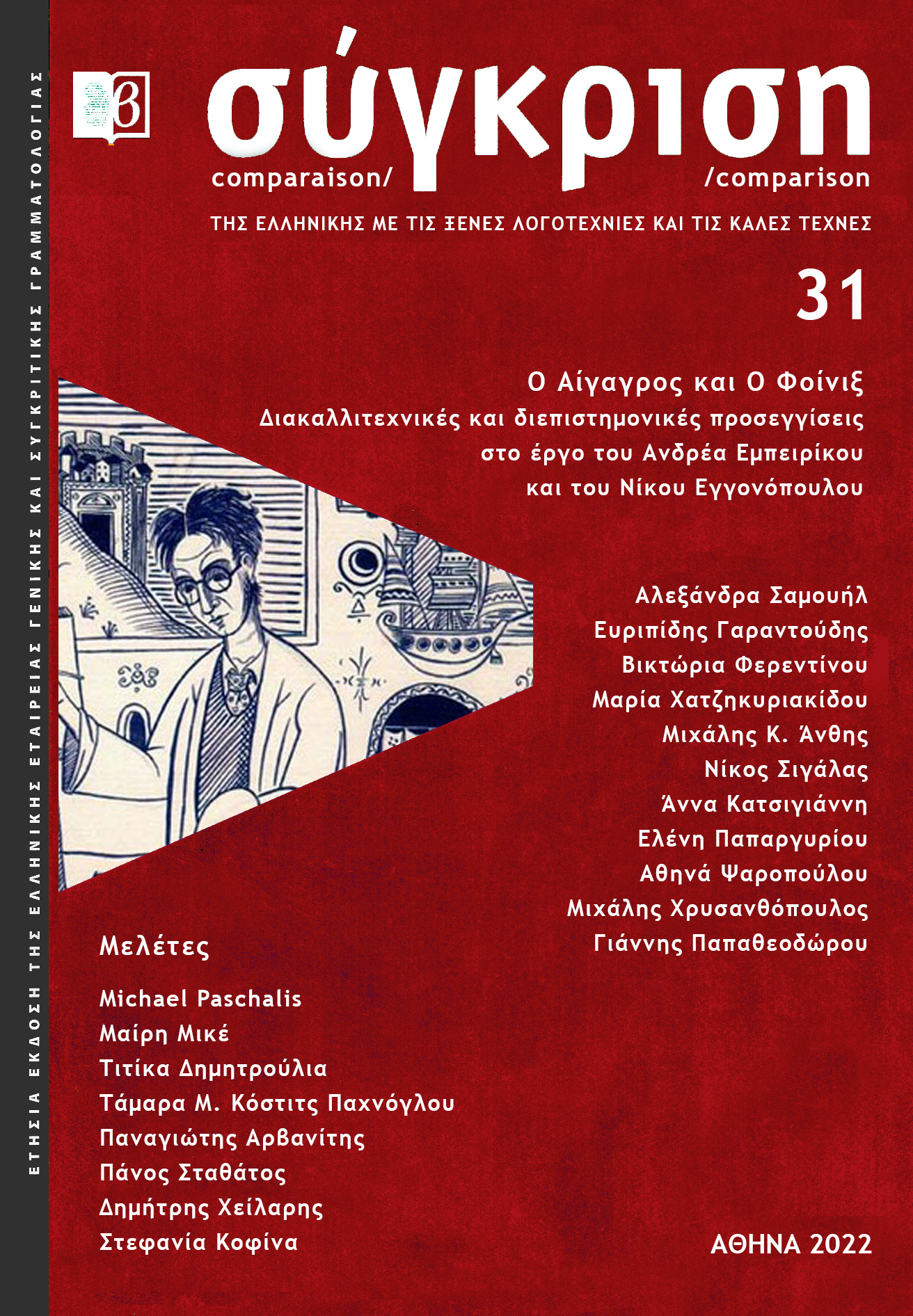Λησμονημένα ίχνη. Η παρέμβαση του Δημήτρη Μορτόγια (1934-1975)
Abstract
Mairi Mike
Eleni Katsaveli
Forgotten traces
The intervention of Dimitris Mortogias (1934-1975)
Retracing Mortogia's forgotten impact on the public sphere and rediscovering his identity as a writer become set goals for this joint research. Ranging from poetry to critical aspects and then to translations Mortogia's work is placed in its ideological and aesthetic contextual background. After the study of the primary material, the main impetus for research on this topic is to extract the way in which issues and aesthetic criteria were examined in this period and to analyze the new issues that were formed, in order to show what has changed, modified, maintained or overturned. His mark on the post-Junta movements is examined through a genealogical lense – sheding light on the innovating character of his critical views.
In the Appendix I of the essay, Mortogia’s ergography is composed for first time and in Appendix II, un unpublished text about the dictatorship in Greece comes to light.
Λέξεις κλειδιά:
Dimitris Mortogias, critical issues 20th century, post-Junta reception
Article Details
- How to Cite
-
Κατσαβέλη Ε., & Μικέ Μ. (2023). Λησμονημένα ίχνη. Η παρέμβαση του Δημήτρη Μορτόγια (1934-1975). Comparison, 32, 279–315. Retrieved from https://ejournals.epublishing.ekt.gr/index.php/sygkrisi/article/view/34948
- Issue
- Vol. 32 (2023)
- Section
- Articles

This work is licensed under a Creative Commons Attribution-NonCommercial-ShareAlike 4.0 International License.
Authors who publish with this journal agree to the following terms:
- Authors retain copyright and grant the journal right of first publication with the work simultaneously licensed under a Creative Commons Attribution Non-Commercial License that allows others to share the work with an acknowledgement of the work's authorship and initial publication in this journal.
- Authors are able to enter into separate, additional contractual arrangements for the non-exclusive distribution of the journal's published version of the work (e.g. post it to an institutional repository or publish it in a book), with an acknowledgement of its initial publication in this journal.
- Authors are permitted and encouraged to post their work online (preferably in institutional repositories or on their website) prior to and during the submission process, as it can lead to productive exchanges, as well as earlier and greater citation of published work (See The Effect of Open Access).




